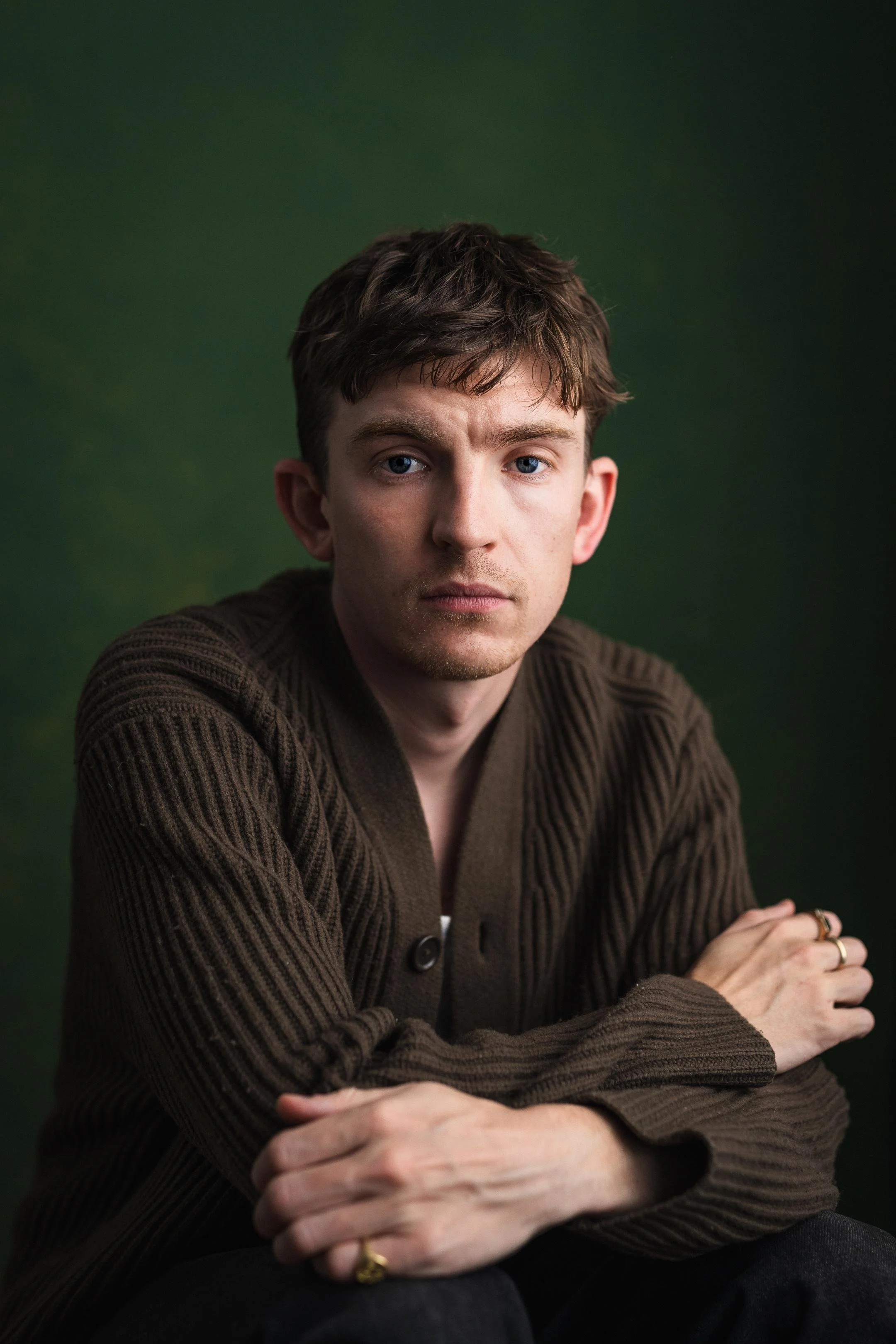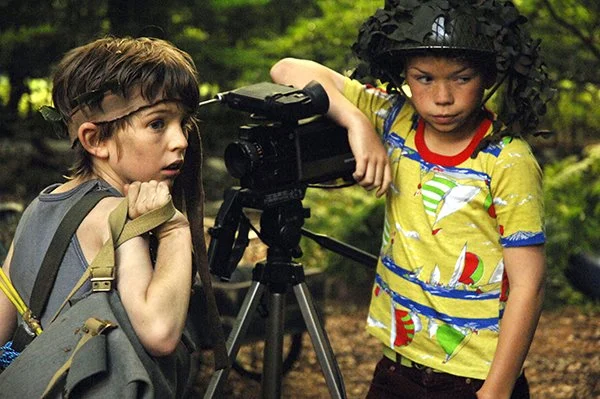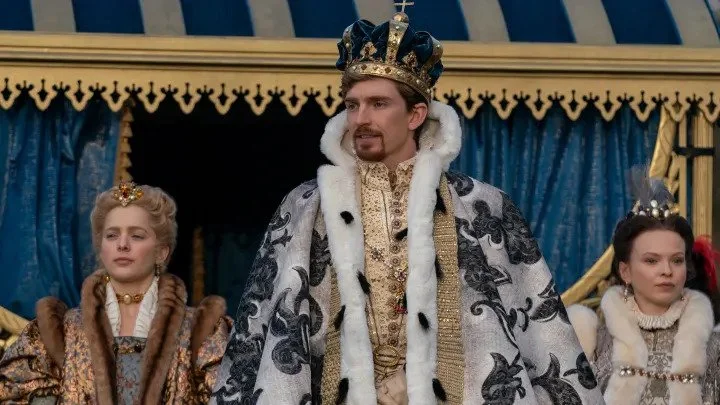Bill Milner
Having kicked off his career at age 11 in the family comedy Son Of Rambow, Bill Milner has practically grown up on screen. Now starring as King Charles IX in the new series of The Serpent Queen, he talks to us about leading a film as a child actor, working with Michael Caine and the plays he’s enjoyed recently.
Your career began as a child, with a starring role in the 2007 film Son Of Rambow - how did you land that?
I was cast in Son Of Rambow when I was 11, and that was thanks to a casting director who came to a drama group I used to go to after school, called Dragon Drama. I’d been going there since I was about 6 or 7, perhaps younger, and I think I learnt there a lot of the tools that you use as an actor - to improvise, change characters, constantly be on your feet. When you’re on set and building a character, these things keep you imaginative. In the past I’d perhaps cast aside how much I’d learnt - in interviews I’d say “Oh, yeah, I went to an acting group and we had fun”, but I feel now I have to put my hands up and say thank you to the group. Being there taught me a lot of useful things that I now bring into my acting - and the person who ran the group introduced me to my agent!
Where did you go from there, after Son Of Rambow?
It was an interesting time, straight after doing the film - I think a lot of actors, when they get their big break, imagine it’s going to be just one trajectory, upwards from there. My work was pretty consistent, gradual, over those years, and relatively speaking it was quite easy, given that I was an 11 year old who’d led a film already, and was probably in a casting bracket of ten to twenty other white, brown-haired, blue-eyed British boys, so it wasn’t until later that I got the reality check of “Oh, this is actually not as easy as it seemed.”. I was fortunate enough to work with Michael Caine on a film called Is Anybody There?, shortly after Son Of Rambow. Obviously with that it was me and Will Poulter both doing our first film together, experiencing it alongside each other, and what I didn’t realise until fairly recently, from some of my friends who were also child actors, is that it’s quite rare being able to share your first-time filmmaking process with another person the same age. Working on Is Anybody There?, most days I was the only child. While that can be quite lonely and intimidating, it was also really nice to feel like a grown-up actor, and to feel like you’re standing shoulder-to-shoulder with the adults. Michael Caine was so sweet, and David Morrisey and Anne-Marie Duff - they were so gracious and generous and looked out for me.
Did you feel much pressure, as a successful child actor, to keep working consistently?
To some degree - I think much of it came from myself. I’m actually in the process of starting a podcast with a friend of mine, talking about child actors and that experience. As a child actor you’re dealing with quite adult emotions without anyone to really talk about it with - you don’t particularly want to tell your parents or your agent, but you don’t necessarily want to tell your friends at school either. You might make some other kid friends on film sets, but then you just make a film together and maybe don’t see each other again. I’ve been lucky enough to grow up with a few child actor friends, and now we’re heading towards our thirties, and it’s only been recently that we’ve been able to touch on those quite bizarre points. It’s been quite vindicating to realise that those feelings that maybe aged 16 you thought were bad or messed up were actually a shared experience. Again, for me I think a lot of it was in my head - I didn’t have the language of an adult or someone who’d had enough time to process these things to really talk about that.
You’re currently appearing in the second series of The Serpent Queen, playing King Charles IX - how did you prepare to play a real historical figure?
In Son Of Rambow (left)
There were a lot of firsts for me on this project! One being that this was the first time I’d had the privilege of playing a role over multiple episodes, with quite large overarching storylines. You have to think about where you want to take your character and where the story is taking him. It also happened to be my first real experience of being on a TV show, and of course joining a show which had previously had a whole season. In terms of the tone of the show, before auditioning I watched the whole first season and knew exactly what they were going for, and I was fortunate enough in that I felt it really suited my acting style, and the character as well. For me, that’s the best preparation you can have, a show already having a season out there, so you have a guide and you know where to take it. As for historical accuracy, I’m sure some history buffs will have some bones to pick with Justin Haythe, our writer and showrunner, but hey, that’s kind of the joy of the storytelling! History was never my strong suit at school if I’m honest, so I’m quite glad not to have to scrub up on things!
You’ve also worked behind the camera, in set design and producing - is this something you want to expand upon in the future?
I’ve always wanted to be somewhat multihyphenated in my work - if you’re realistic with being an actor it’s hard to sustain yourself on acting alone. I got into the set design work through my mum, actually! I sort of take after her in a kind of “jack of all trades” way, in that we try to give everything a go. This actually goes all the way back to Son Of Rambow, when we were shooting an underwater scene right near the end of the movie, and the costume designer couldn’t make the last few days of the shoot. My mum, who was my chaperone on set, stepped in to help with the costumes that day - from there an in-joke was then born that my mum was the stand-by underwater costume designer, or some ridiculously long title like that - she is in the credits of the movie! A friend of my mum’s, many years later, was making a short film that she worked on the art direction of - one thing led to another and she partnered up with an amazing designer called Aimee Meek, and they both worked on Boiling Point. At one point they were looking for someone to help knock up some flats on a set for them, and who better to ask than your own son? Nepotism, that’s how I got into it! I have always really appreciated the practical and physical aspects of filmmaking, and I think if I hadn’t decided to pursue acting I would have maybe headed down that route. I also produced a short film for Channel 4 called Good Riddance, directed by Bertie Gilbert, and I roped my mum into that - together we built a set for a scene in that.
Do you make much of an effort to go to the cinema or watch films at home often?
It definitely goes in waves for me. I think winter is a nice time to go to the cinema and be cozy. On top of acting I also work at a cafe from March to November, so that does take up time - I’d fall asleep if I went to the cinema later than about 5pm! I’m usually a mid-day cinema-goer, when possible. I don’t watch many of the viral streaming shows, which I perhaps shouldn’t say as someone who’s about to be seen on a streaming platform! More recently I’ve been trying to get back into going to the theatre - I recently saw Bluets at the Royal Court, and I saw People, Places, Things, both of which I loved.
In The Serpent Queen
Have you done any theatre yourself?
I didn’t do my first play until I was 18, so about seven years after I’d started working. I find that it feels like the most intimidating medium for me, just because it’s not what I’m used to. I know a lot of friends of mine who’ve come out of drama school, which is predominately stage-based, they feel the opposite - they’ll be on set and feel out of place, but get them in a rehearsal room and they feel comfortable. I think, as well, I feel maybe that because I didn’t train, I don’t know the classic texts, that I’m not suited to that stuff. I prefer to stay with more modern plays. I did one at the National Theatre called Antipodes by Annie Baker, which was weird and funny and modern - that really suited me. I’d love to do more theatre, and I love going, but it does scare me a bit!
What kinds of roles do you specifically look for, when you get a script or an audition?
That’s a question I have been asked before, and I always struggle to know! I think the reason I love being able to do this as a job is that there’s so much variety, and so much nuance between every single job - even if you only did British comedy for the rest of your career, every job would feel unique. I think it does sometimes come down to things like the people involved in a production - if there’s an actor I like, whose work I’ve admired. But you know what, even then that’s never a great guide - you might work with someone you admire, but the finished product turns out to be not very good! I’ll never really look for one single thing or try to follow one single person. Long story short - whatever pays! I’m more and more coming to the realisation that I have to make this thing a sustainable career, and I do have to subsidise it with hospitality work - I think before I took that job I was kind of ashamed of the idea of doing it. At the end of the day, we’re all just trying to eat and have a roof over our heads, and if I get to do that while being on a film set or getting up on stage sometimes then I count myself pretty lucky.
Words: Scott Bates
Follow BIll on Instagram


